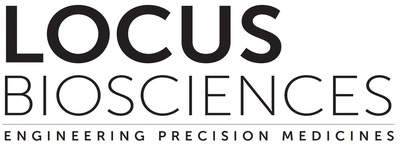Locus Biosciences announced today that it has signed a contract with the Biomedical Advanced Research and Development Authority (BARDA) to co-fund development of LBP-EC01, a CRISPR Cas3-enhanced bacteriophage (crPhage™) product that will target Escherichia coli ( E. coli ) bacteria causing recurrent urinary tract infections
|
MORRISVILLE, N.C., Sept. 30, 2020 /PRNewswire/ --Locus Biosciences announced today that it has signed a contract with the Biomedical Advanced Research and Development Authority (BARDA) to co-fund development of LBP-EC01, a CRISPR Cas3-enhanced bacteriophage (crPhage™) product that will target Escherichia coli (E. coli) bacteria causing recurrent urinary tract infections (UTIs). Under the partnership agreement announced today, BARDA, part of the Office of the Assistant Secretary for Preparedness and Response at the U.S. Department of Health and Human Services (HHS), will provide up to $77 million in funding to Locus as part of a $144 million program to support Phase 2 and Phase 3 clinical trials and other activities required to seek marketing approval from the U.S. Food and Drug Administration (FDA) for LBP-EC01. LBP-EC01 is a bacteriophage cocktail that has been engineered with a CRISPR-Cas3 construct targeting the E. coli genome. The product works through a unique dual mechanism of action utilizing the natural lytic activity of the bacteriophage along with the DNA-targeting activity of CRISPR-Cas3. This dual mechanism makes LBP-EC01 significantly more effective at killing E. coli cells than corresponding natural bacteriophages, as shown both in laboratory tests and in small animal models of urinary tract infection. The mechanism also makes LBP-EC01 effective in killing E. coli strains regardless of whether they are resistant to antibiotics. Antibiotic-resistant infections are a particular concern with large-scale use of antibiotics to treat secondary infections during a pandemic, such as those caused by H1N1 influenza or SARS-CoV-2. The need for new precision antibacterial therapies that selectively kill target bacteria while leaving good bacteria in the body unharmed is widely recognized. "The development of non-traditional therapies that possess alternative properties to conventional small-molecule antibiotics represents a unique opportunity to advance the field of medicine and provide new treatment options to patients with antimicrobial-resistant infections which are a growing concern for our nation's health security," said BARDA Acting Director Gary Disbrow, Ph.D. "We are incredibly pleased to partner with BARDA to advance our lead asset into advanced clinical trials," said Paul Garofolo, CEO of Locus. "Not only will BARDA provide critical expertise to support the program through the later stages of clinical development, but its support dramatically increases the profile of precision medicines to address the emerging worldwide public health crisis around antibiotic resistant infections." Worldwide, an estimated 150 million people are affected by UTIs each year. Approximately 80% of these are caused by E. coli, often including difficult-to-treat strains that are resistant to commonly used antibiotics. Up to 40% of UTI patients experience a recurrence within months of the first episode. Both the U.S. Centers for Disease Control and Prevention (CDC) and World Health Organization (WHO) have identified antibiotic-resistant E. coli as an urgent and serious public health threat requiring development of new treatments. About Bacteriophage Therapy About Locus Biosciences About HHS/ASPR/BARDA
SOURCE Locus Biosciences |





